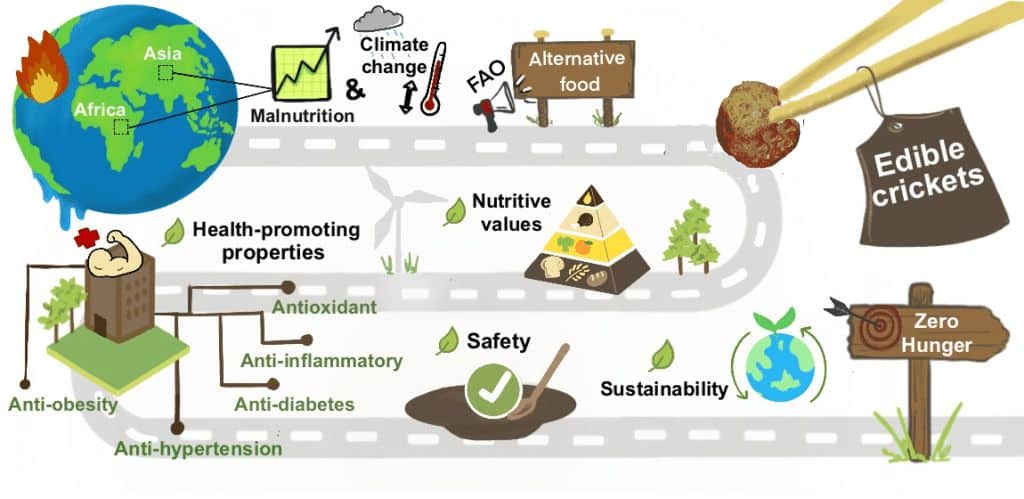Antioxidant Activities:
Our body generates harmful molecules called free radicals during cell processes, which can cause cell damage and diseases like cancer. Edible crickets contain substances that can counteract these free radicals, preventing their harmful effects. Tests in labs and living organisms show that certain types of crickets, like G. bimaculatus and A. domesticus, exhibit antioxidant abilities.
Anti-Inflammatory Properties:
Inflammation is our body’s response to infection or injury. Edible crickets, particularly G. bimaculatus, have shown promise in reducing inflammatory responses in both lab studies and animal models. These crickets contain compounds that can help control inflammation, potentially aiding in various inflammation-related conditions.
Anti-Diabetic Properties:
Crickets, especially G. bimaculatus, have shown potential in managing diabetes. Studies using cricket powder in diabetic rats displayed improvements in blood sugar levels and insulin resistance. These crickets contain components that act against diabetes by improving insulin function and reducing blood sugar.
Anti-Obesity Properties:
Obesity-related diseases like diabetes and heart issues are a significant concern. Some studies suggest that edible crickets, such as G. bimaculatus and A. domesticus, might help control obesity by reducing body fat accumulation and aiding in lipid metabolism.
Other Biological Activities:
Crickets might have other health benefits, including anti-aging properties and potential effects on gut health. They could affect gut bacteria in ways that might benefit human health, like potentially aiding in obesity management and supporting a healthy gut environment. Additionally, they show potential as anti-hypertension agents, possibly helping to control blood pressure.
Overall, edible crickets show promise as a source of various health benefits, from combating inflammation and diabetes to potentially aiding in weight management and promoting overall health.
Additionally, in the farming and processing of crickets, companies like Global Bugs Asia play a pivotal role. Global Bugs Asia specializes in cultivating and processing crickets in a closed environment, ensuring the highest safety standards are met. By employing controlled and hygienic conditions, they maintain a pristine environment for cricket farming, ensuring the safety and quality of the end product for consumers. This focus on controlled environments enhances the reliability and safety of cricket-based products, offering consumers confidence in the nutritional benefits of edible crickets.
Download the original paper from the International Journal of Molecular Sciences.





